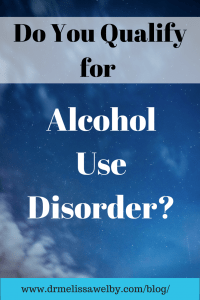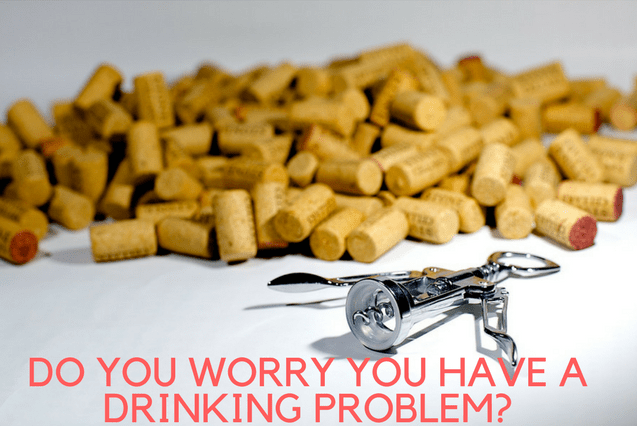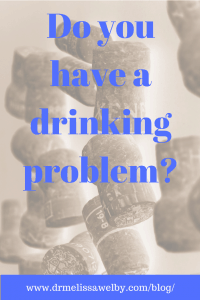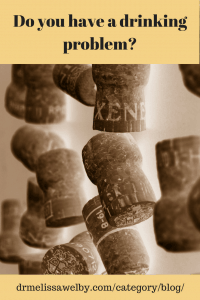Do I have a drinking problem? It is not uncommon for people who drink alcohol to wonder if their drinking is normal or problematic (or somewhere in between). Some people have alcohol addiction that runs in their families so they know they are at risk for addiction. They want to monitor their drinking closely to make sure they don’t have a drinking problem. Others are confronted by loved ones who think they may have alcohol abuse and the person isn’t sure they agree. Do you want to see if you meet criteria for the diagnosis of Alcohol Use Disorder? Read here to find out.
Do I have a drinking problem?
Here are the newest diagnostic criteria from the DSM-5 (the diagnostic manual put out by the American Psychiatric Association).
Take this survey and see how you score:
In the past year, have you:
-
- Had times when you ended up drinking more, or longer, then you intended?
- More than once wanted to cut down or stop drinking, or tried to, but couldn’t?
- Spent a lot of time drinking? Or being sick or getting over other aftereffects?
- Wanted a drink so badly you couldn’t think of anything else?
- Found that drinking- or being sick from drinking- often interfered with taking care of your home or family? Or caused job troubles? Or school problems?
- Continued to drink even though it was making you feel depressed or anxious or adding to another health problem? Or after having had a memory blackout?
- Had to drink much more than you once did to get the effect you want? Or found that your usual number of drinks had much less effect than before?
- Found that when the effects of alcohol were wearing off, you had withdrawal symptoms, such as trouble sleeping, shakiness, restlessness, nausea, sweating, a racing heart?
Do I qualify for Alcohol Use Disorder?
The presence of at least 2 of these symptoms indicates an Alcohol Use Disorder.
Alcohol Use Disorder is divided into mild, moderate, and severe.
Mild: The presence of 2 to 3 symptoms
Moderate: The presence of 4 to 5 symptoms
Severe: The presence of 6 or more symptoms
Alcohol Abuse and Withdrawal vs. Alcohol Use Disorder
Alcohol Use Disorder previously was called alcohol abuse and alcohol dependence. Here is an article from the NIH discussing the change in diagnostic terms: http://pubs.niaaa.nih.gov/publications/dsmfactsheet/dsmfact.pdf.
If you have Alcohol Use Disorder:
If you qualify for Alcohol Use Disorder it is important for your provider to be aware even if you aren’t ready to stop drinking. Alcohol Use Disorder can complicate clinical assessments and treatment if the provider isn’t informed. If you would like to stop drinking you may need professional assistance to do it safely.
If you have Alcohol Use Disorder assess your risk for withdrawal symptoms if you stop drinking. See my post on alcohol dependence to read more about this risk.
I recommend these books to read more about alcohol addiction:
[amazon_link asins=’B00IN9B6SA,1622034295,0996715002,0875526063,0073404659,B00AZ4NM9W,1557761515,0916856372′ template=’ProductGrid’ store=’drmelissawelb-20′ marketplace=’US’ link_id=’86936648-cf11-11e7-a5d1-61ba0990d479′]
Don't miss another post!

Subscribe to get our latest content by email.




